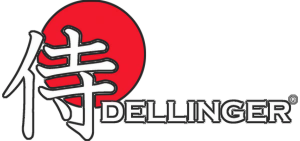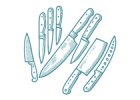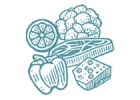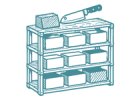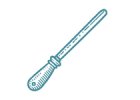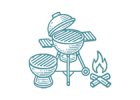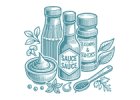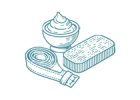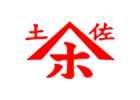Knife sharpening
Knives , especially from damascus steel, which we offer in our shop www.dellinger.cz are characterized by high quality hand or industrial processing and very long service life. Care is very important to maintain the knife's top cutting performance. Knives must be sharpened as required, preferably on sharpening stones. Grinding stones are produced in many designs and grits (coarseness). The kitchen knives we all use most often require the most frequent care - namely sharpening. At dellinger.cz, choose from a range of both synthetic and natural sharpening stones to help you keep your knives sharp. Buy a sharpening stone and you will see that a sharp knife is much safer than a dull knife.
Choosing a grinding stone - differences in the materials used
There are three most common types of grinding stones in use today. These are oil grinding stones, water grinding stones and diamond grinding stones. Each of these sharpening stones has its own advantages that can help users achieve their goals and dream edge.
Bestsellers

Dellinger knife sharpening kit with combined RISAM sharpening stone with a very fast sharpening and polishing effect, bamboo base and guide for easier angle maintenance during...

Compact broaching sharpener with carbide and ceramic inserts for fast coarse and fine sharpening of knives at angles of 20° and 25°. Ideal for outdoor and home use.

Adjustable RISAM grinding stone holder, suitable for multiple stone sizes thanks to movable foot with stop. Use the guide screws to adjust the desired stone size. Non-slip...
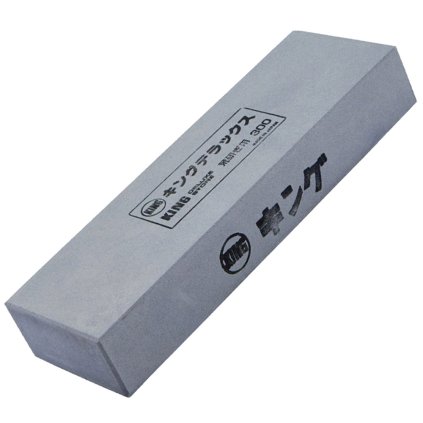
The Japanese coarse King #300 sharpening stone from the Deluxe series is an ideal choice for basic shaping and repairing severely damaged blades. Fast material removal, easy to...

The Japanese medium-grit KING K-45B #1000 whetstone from the HOME STONE “HT” series with a stable base – ideal for regular edge maintenance. Fast stock removal, easy to use,...

Ceramic sharpener with a grit of approx. 1500-2000 grit for gentle and precise alignment of the blade. Ideal for regular maintenance of Japanese and European knives. The perfect...
